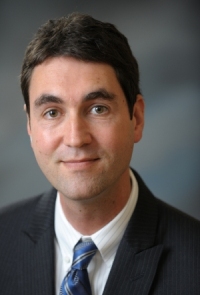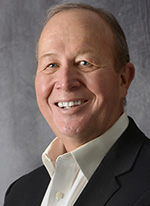 …associate professor of finance and economics at the Gies College of Business, University of Illinois Urbana-Champaign.
…associate professor of finance and economics at the Gies College of Business, University of Illinois Urbana-Champaign.
Welcome back to Peoria Magazine’s Econ Corner, a recurring feature in which we pose questions to experts about various economic issues and how they affect our lives and careers here in central Illinois.
Doing this month’s Q&A is Julian Reif, associate professor of finance and economics at the Gies College of Business, University of Illinois Urbana-Champaign. An applied microeconomist with a research emphasis on health care and its related issues, he also is affiliated with the National Bureau of Economic Research.
Peoria Magazine (PM): Prices for medical services typically rise faster than in the broader economy, but the opposite has happened during the most dramatic inflationary period in the last 40 years. Despite COVID and its impact on labor costs and revenues, despite supply chain issues and their effect on equipment prices, health care costs have risen at about half the rate of the wider economy.
What gives? Is this likely to be a short-lived phenomenon? In short, what does 2023 likely hold in store for Americans on the health care front?
Julian Reif (JR): Yes, this is likely a short-lived phenomenon. Health care prices take time to change. Medicare updates its price schedule only once per year. In the private sector, prices are negotiated between providers and insurers, with values often contractually set for a period of several years. Thus, many of today’s prices were set prior to the recent surge in inflation.
It is likely that the next round of price negotiations and fee schedule increases will result in significantly higher prices.
In addition, many Americans canceled or postponed health care appointments at the beginning of the COVID-19 pandemic. This may increase the demand for current health care services as patients try to make up for previously missed appointments, which will further push up the price of health care.
PM: Some news reports are predicting health insurance premium increases of 10% or more. If that’s not too far off base, what would you expect health consumer behavior to be in response to that? Higher percentages of uninsured? Less consumption of health care services? Will the federal government’s Inflation Reduction Act and Obamacare subsidies soften the blow enough to influence that behavior in any significant way?
JR: I don’t expect increases in health insurance premiums to have much immediate effect on health care consumption, in part because many of those premiums are paid by employers and not by the individuals themselves.
A more important question is whether insurers will increase patient cost-sharing by, for example, increasing deductibles or copays. There is good evidence that increased cost-sharing reduces medical utilization. The good news is that this can help keep total medical costs low by reducing unnecessary care. The bad news is that some people may forgo valuable care that would improve their health.
PM: Health care costs reportedly have an exaggerated influence on the Federal Reserve’s preferred metric for measuring inflation. If those medical costs spike now, how is that likely to shape the Fed’s ongoing response? Is the health care industry somehow different than other economic sectors regarding the Fed’s ability to exert some influence over those costs?
JR: If health care costs spike, that will contribute to further inflationary pressures and makes it more likely that the Fed will keep interest rates high. And of course, the Fed’s decision will also depend on what is going on in the rest of the economy.
It’s worth noting that housing, which has greatly contributed to inflation, is a lagging measure and thus — like health care prices — reflects the state of the economy as it was, not as it is. Housing prices rose significantly a year ago because of the move to remote work, but if that change is now over, it may offset some of the rise in health care prices and stabilize inflation.





